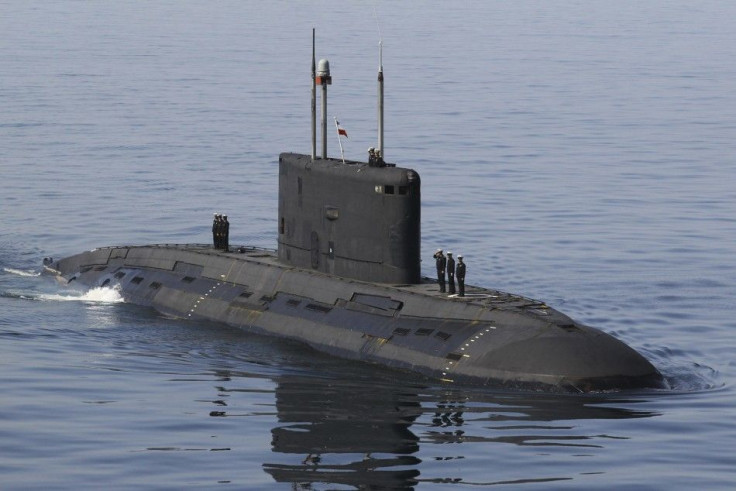Iran Says It's In Initial Stages Of Developing Nuclear-Powered Submarines

Iran said Tuesday that it is beginning to build its own nuclear-powered submarines.
The report comes amid the impasse over Tehran's alleged clandestine nuclear weapons program, and may add to Western concerns over Iran's nuclear ambitions.
Right now, we are at the initial phases of manufacturing atomic submarines, Lieutenant Commander of the Navy for Technical Affairs, Rear Admiral Abbas Zamini, was quoted as saying by Iran's Fars News Agency (FNA).
Zamini said using nuclear power to fuel submarines was one of the civilian uses of the nuclear technology and all countries were entitled to the right to make such use of it.
Iran also said that it had begun the overhaul of one of the three Russian-made submarines in its fleet, despite Moscow rejecting Tehran's requests for help with the remodeling, FNA reported.
Addressing a ceremony to launch a heavy submarine May 29, Iranian Navy Commander Rear Admiral Habibollah Sayyari said Iran had the ability to carry out full or partial repairs for submarines. He said the submarine, called Tareq, was fully functional for operations in the high seas.
Moscow had reportedly offered to carry out repair and advanced installations in Russia that Tehran rejected due to its reluctance in withdrawing the submarines from service for long periods.
In 2010, Russia refused to honor an earlier commitment to Iran to sell an advanced anti-aircraft missile system.
Iran's military establishment felt the need to develop an indigenous defense industry following the Iranian revolution and the Iran-Iraq war in the 1980s.
Tehran was supplied with three Type 877 Kilo-class submarines by Russia in the 1990s but was left to deal with technical problems later. Some of these problems were resolved with help from India, according to a report by Nuclear Threat Initiative (NTI), a nonprofit organization dealing with global security issues.
Defense experts say that in the past, Iran has also received midget submarines from North Korea and has built its own small-sized subs, such as the Nahang-class subs.
Tehran and New Delhi signed a military memorandum of understanding in 2003 for increased defense cooperation, during which the latter originally offered to sell Iran submarine training simulators and to assist with ship maintenance and repair facilities.
Tehran is scheduled to hold a new round of talks with the U.S., China, Russia, Germany, France and Britain in Moscow June 18 and 19 to discuss its nuclear plans and uranium enrichment.
Iran's archrival Israel and the latter's ally, the U.S., have not ruled out the possibility of a preemptive military strike if talks to resolve the standoff fail.
During talks in Baghdad last month, world powers had urged Tehran to curb production of refined uranium in return for fuel for a medical research reactor in Tehran.
© Copyright IBTimes 2024. All rights reserved.












